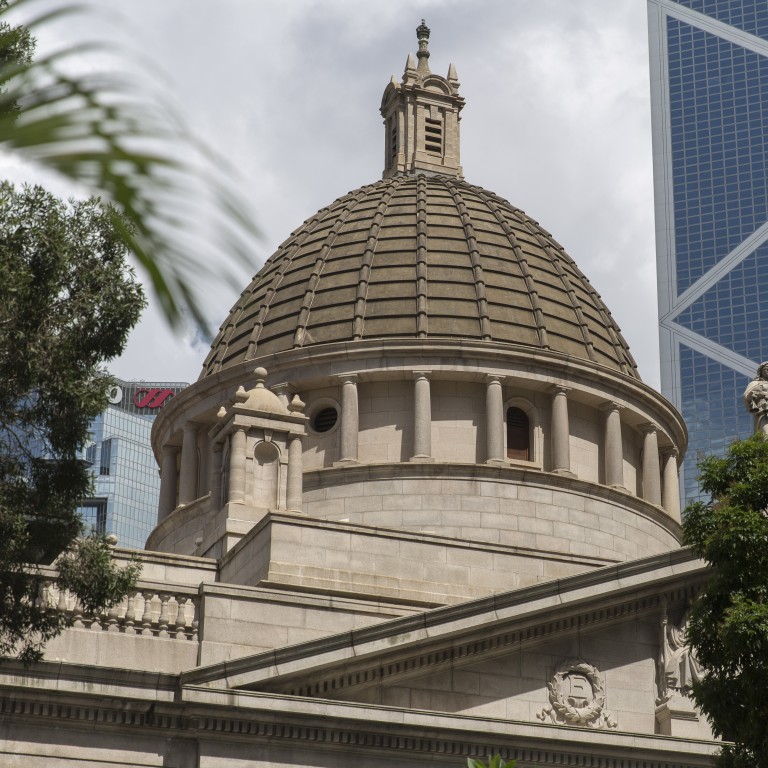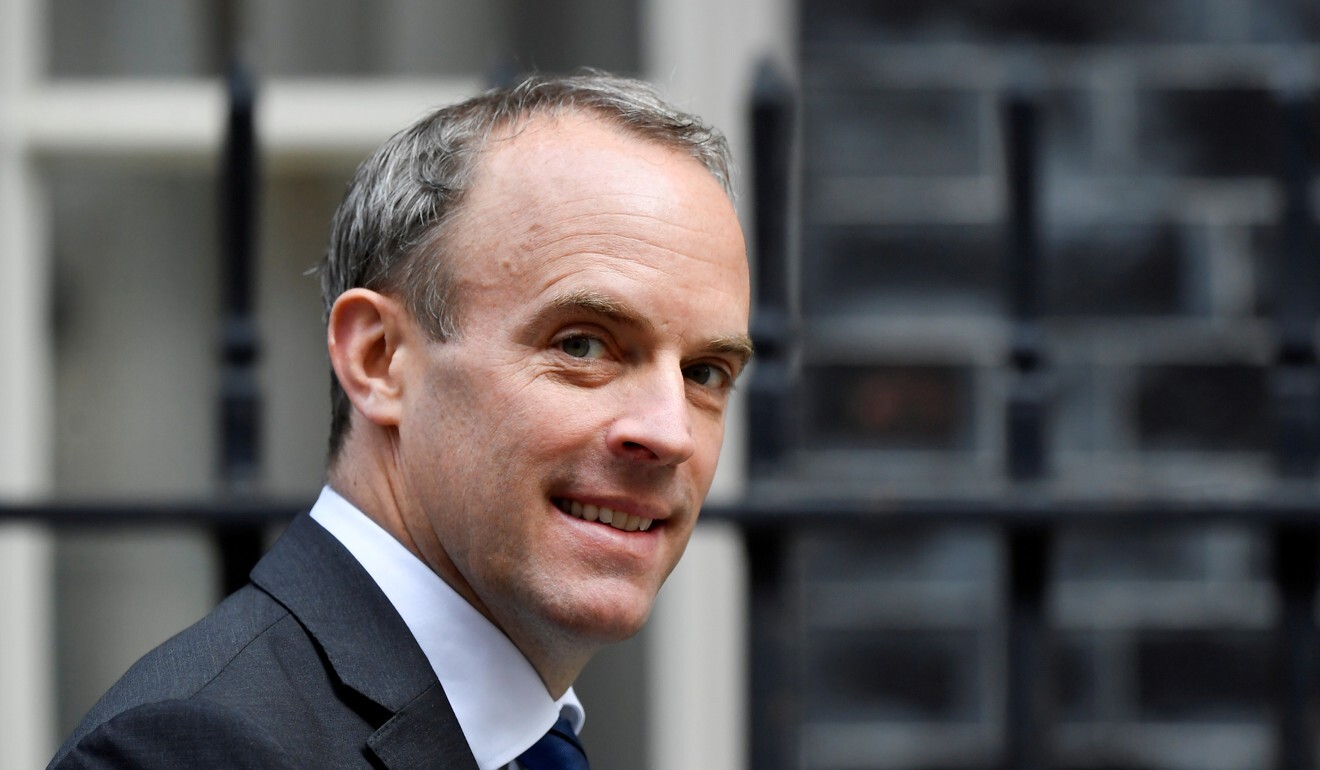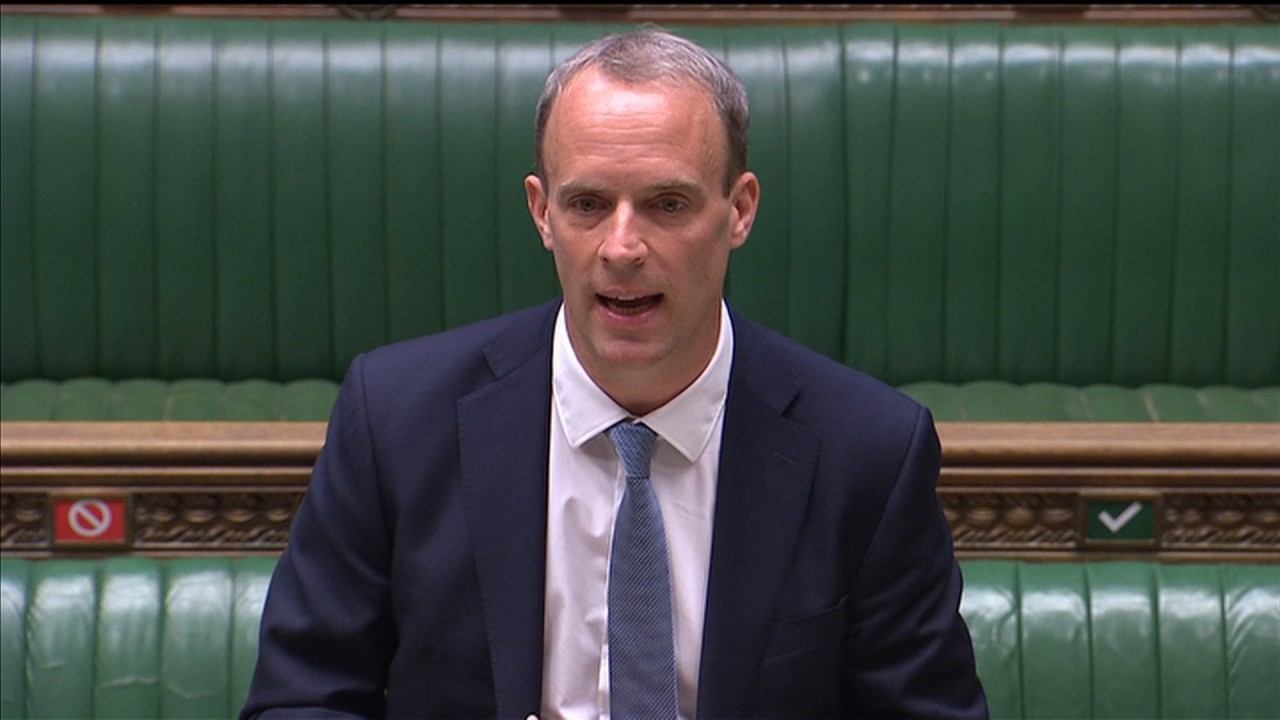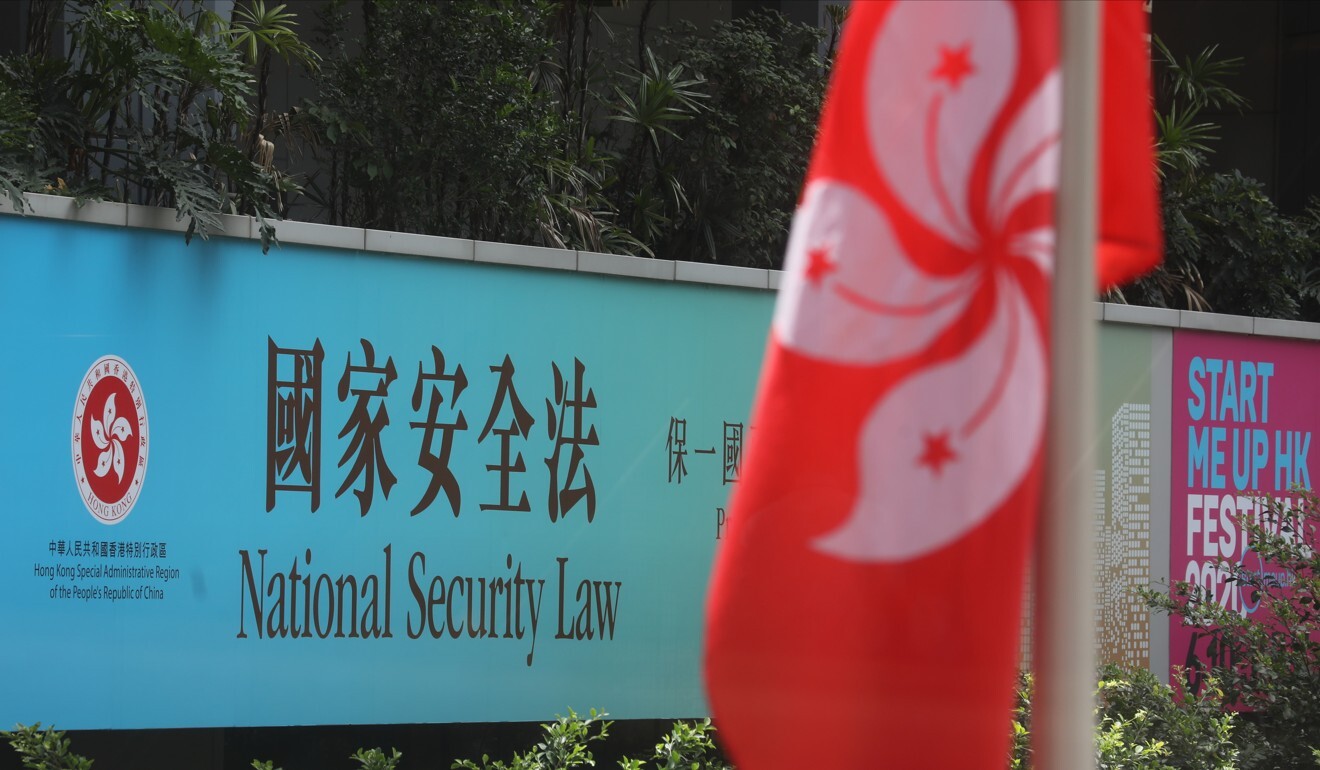
Britain rebuked by Beijing and Hong Kong government after foreign minister says it will review arrangement for judges sitting on city’s top court
- British foreign minister expresses concern over new national security law and says London is reviewing whether judges can sit on Hong Kong’s top court
- Beijing tells Britain to ‘wake up from its colonial nostalgia and stop any interference in Hong Kong affairs’.
Foreign Secretary Dominic Raab revealed the move in a six-monthly report tabled in parliament, in which he criticised the imposition of the law in June, and accused the Hong Kong government of being focused on “retribution against political opposition and silencing of dissent”.
“This calls into serious question China’s commitment to the ‘one country, two systems’ framework,” he said.

The remarks drew a strong rebuke from Beijing, which argued Britain had no “supervisory power or moral responsibility” over Hong Kong affairs.
“We urge Britain to abandon their colonialist ideals, and stop their hypocritical acts and double standards, and interfering in other countries’ internal affairs,” foreign ministry spokesman Zhao Lijian said at a press conference in Beijing on Tuesday.
The central government’s foreign affairs office in Hong Kong also weighed in, urging Britain to “wake up from its colonial nostalgia”.

00:51
Britain suspends Hong Kong extradition treaty over national security law
In the report, Raab called the first half of 2020 “the most concerning period in Hong Kong’s post-handover history”, and described the effects of the security law as “chilling”.
“Together with the Lord Chancellor [the justice secretary], I have begun consultations with Lord Reed, president of the UK Supreme Court, concerning when to review whether it continues to be appropriate for British judges to sit as non-permanent judges on the Hong Kong Court of Final Appeal,” Raab noted in the report.
In a statement issued in the early hours of Tuesday, the Hong Kong government strongly objected to what it called “sweeping attacks and groundless accusations” on several recent developments in the city mentioned in the six-monthly report.
The national security law is already reducing the extent to which the people of Hong Kong are able to exercise their fundamental rights and freedoms
Raab’s remarks represented a tougher line from Britain and suggested the internal deliberations in the highest echelon of its government had focused on a timeline for a review of the judicial cooperation.
Lord Reed had said in a statement on July 17 that Britain’s Supreme Court would “continue to assess the position in Hong Kong as it develops, in discussion with the UK government”.
On June 30, China imposed the sweeping national security law on Hong Kong, criminalising in broad terms any acts of secession, subversion, terrorism and collusion with foreign forces to endanger national security, with serious violations punishable by life imprisonment.

In his last report on the city, released before the imposition of the security law, Raab urged China “to reconsider, to step back from the brink and respect Hong Kong’s autonomy and respect its own international obligations”.
Since then, the British government has declared the law a “clear and serious breach of the Sino-British Joint Declaration”, and called a decision by China’s top legislative body earlier this month empowering local officials to summarily oust sitting lawmakers another violation of the international treaty.

Raab said in the latest report: “The chilling effects of the national security law can already be seen in Hong Kong. It is already reducing the extent to which the people of Hong Kong are able to exercise their fundamental rights and freedoms.”
Legal experts warned that the absence of overseas judges on Hong Kong’s top court could be a severe blow to the city’s judicial reputation.
Stuart Hargreaves, associate professor at Chinese University’s Faculty of Law, said the presence of overseas judges in the Court of Final Appeal had been an important symbol of Hong Kong’s judicial autonomy under the “one country, two systems” framework, which guaranteed the city a high degree of autonomy.
“Their presence serves to communicate to the outside world that Hong Kong’s legal system remains independent; the theory being that the overseas judges would stop coming if they felt the independence of the bench were compromised in some way,” Hargreaves said.
Beijing calls for judicial reform in Hong Kong, focuses on patriotism
Simon Young Ngai-man, associate law dean at the University of Hong Kong, added that the departure of the British judges would mean the city becoming less connected to the common law world.
“People will wonder if their departure means one no longer will have a fair shake in the courts, and inevitably cast a dark shadow on Hong Kong’s economic future and business environment,” said Young.
While the lack of overseas non-permanent judges would be a huge blow to the city’s legal reputation, Phillip Dykes, Hong Kong Bar Association chairman, pointed out that no country had an obligation to provide judges to other jurisdictions.
“They provide non-permanent judges on the basis of what they think the Joint Declaration and the Basic Law [the city’s mini constitution] have to offer, and that has changed, so they are quite entitled to change their views,” he said.

